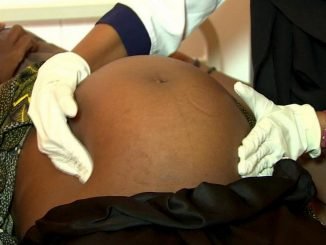
Kampala, Uganda | URN | Uganda and other African countries urgently need policies for adolescents and young people to access contraceptives. The suggestion to allow teenagers, especially school-going ones to access and use contraceptives remains controversial not only in Uganda but in some African countries.
But Ugandan and international health and population experts meeting in Kampala say policies need to be in place to avert the teenage pregnancy crisis. Uganda is among the countries with the highest teenage pregnancies.
Studies from the Ministry of Gender indicated that one in four Ugandan women aged 15-19 have given birth or are pregnant with their first child by the age of 18.
Speaking to this publication on the sidelines of the three-day conference taking place at Speke Resort Munyonyo, the Executive Director of Family Planning (FP) 2030, Dr. Samukeliso Dube said there is an urgent need for policies if countries like Uganda are to meet aspects of the UN Sustainable Goals (SGDS).
Dr. Dube suggests the need for countries to share specific ideas on how they want their young people to be offered family planning services and information. She says many have been slow which she says affects set family planning targets.
Adolescent health issues are outlined in target 3.7 of the Sustainable Development Goals. Countries are urged to ensure universal access to sexual and reproductive health-care services and the integration of reproductive health into national strategies and programs by 2030.
Dube told this publication that young people are still not accessing these services and yet continue to face challenges associated with teenage pregnancies. She noted that decision-makers are undecided about whether or not adolescents who need such services should get them.
The Ministry of Gender in June last year launched the National Strategy to End Child Marriage and Teenage Pregnancy 2022/2023-2026/2027.
The Minister of Gender, Betty Amongi said the teenage pregnancy rate in Uganda at 25% was the highest in East Africa.
Director General of the National Population Council (NPC), Dr. Jotham Musinguzi said the council looks at the issue of family planning for adolescents as a development matter. He said they have realized that a lot is at stake as girls remain unempowered and yet they are already sexually active.
He says when girls conceive at a young age, they not only risk dropping out of school but also raise the cost of access to care as many will develop complications requiring them to deliver through Caesarian Section which may not be readily available, especially in rural Uganda.
The strategy to end child marriage and teenage pregnancies notes that if the current child teenage pregnancy rate is reduced from 25 per cent to 10 per cent, as targeted in the current Health Sector Development Plan, about half of the health care expenditure for teenage mothers will be saved equivalent to UGX 592 billion (US$169 million) and the per capita health care expenditure will reduce from US$280 to US$105.
The resultant education cost for children born by teenage mothers of over UGX 53 billion (US$14.9Milion) will be saved.
However, the issue of providing contraceptives to young people has been controversial with sections of the public including religious leaders worrying that allowing adolescents to access these drugs will be giving them the green light to engage in premarital sex.
Sheikh Abdallah Semambo who attended this meeting still expresses the same feelings that unregulated access will lead to moral decadence. Instead, he says, experts should invest more in providing information that allows young people to appreciate the dangers associated with early sex and early conception.
But, Dr Richard Mugahi, the Assistant Commissioner in charge of Reproductive Health in the Health Ministry said the public has been misled to think that allowing adolescent girls to access family planning means getting drugs and throwing them around without proper guidance.
For him, family planning will only be given to girls who are sexually active and they are trying to make religious leaders understand this.
He says the picture is already grim with 42% of all pregnancies recorded in the country currently being unintended. 60% of these unintended pregnancies are happening among adolescents.
Studies have demonstrated that a large proportion of adolescents in Uganda and Nigeria are exposed to the risk of conception, receive poor sexuality and contraceptive education, and experience a high incidence of adolescent childbirth.
Read Also: Abortion: The alternative contraceptive among youth in Uganda?
UNESCO estimates that 132 million girls are out of school. Among girls who enter primary school, only a small percentage finish secondary school. Enrolling girls in school isn’t enough. We need to enable them to continue in education.
An estimated 21 million adolescent girls become pregnant each year, and 12 million give birth. In sub-Saharan Africa alone, up to four million teenage girls drop out of school or are excluded every year due to teenage pregnancy. Barriers to girls’ education vary in different countries. However, poverty, child marriage, and cultural norms can play a role.
One problem, in particular, that prevents girls from finishing secondary school is adolescent pregnancy.



